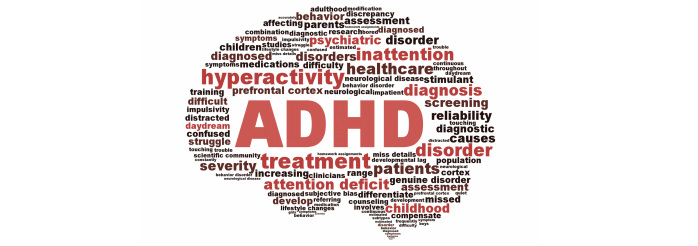Is your child impulsive, hyperactive and highly inattentive? Such children are often regarded as disobedient, ill-mannered, and even rude at times. These behaviours, however, may be a sign of something more serious as they could be indicative of common symptoms of a type of a mental health disorder called Attention Deficit / Hyperactivity Disorder, commonly known by its abbreviation, ADHD.
Symptoms of ADHD can appear at any age between toddlerhood and adolescence. However, the disorder transitions with the person well into adulthood, and can have a life-long effect if ignored. There are three types of ADHD:
- Predominantly inattentive – overall lack of attention, difficulty in focusing on tasks and finishing them.
- Predominantly hyperactive-impulsive – hyperactive behaviour such as not being able to wait in line and generally acting on impulse and in an unpredictable manner
- Combined hyperactive-impulsive and inattentive – perhaps the most common type of ADHD, which manifests the symptoms of both inattentive and hyperactive types

Although it is not unusual for young children and toddlers to show similar behaviour patterns, it is still important to observe the difference between the behaviour of your child and other children of the same age group so as to not miss any warning signs. A child may show severe lack of interest and inability to perform simple tasks. They may also rush through them, make careless mistakes or ignore important instructions and details. They could also daydream so much that their daily life is disrupted, and they can also affect others by acting recklessly. All such cases warrant concern and they should be evaluated for ADHD by a professional such as a paediatrician or a child psychologist.
Children with ADHD need compassion and support, not scolding. Kids are naturally too young to understand the consequences of their actions and their effect on others. Add undiagnosed ADHD to the mix and we have the perfect recipe for raising a confused child, who will find it hard to cope with the demands of adulthood later in life. It is often noted that children with untreated ADHD face much difficulty during adulthood, especially in their professional careers. Even if a diagnosis is made early on and the person has received some treatment, studies show that almost 66% of individuals, diagnosed with ADHD as children, report at least one symptom causing clinically significant impairment during adulthood.
In personal life, while such people often steer around day to day problems caused by ADHD, they could still find their relationships strained. The outside world proves to be even less flexible for them. Some of their symptoms do alleviate with age, yet if untreated, others may aggravate with time. For example, impulsiveness and restlessness can transform into anger issues. Short attention span and frequent mistakes may also negatively affect work performance. Those who have never received a diagnosis, can also find it hard to understand their own behaviour, thus sinking into social anxiety and a sense of failure. For a third person, such as a colleague, an ADHD affected person may come across as careless and unprofessional. Once this bias is introduced, it is probable that work relationships also become affected.

On the other hand, an exceptional strength of people with ADHD is that they can become hyper focused for long periods of time and excel on things that they genuinely enjoy. They can also learn to channel their energy productively and be creative and innovative in certain aspects of their professional life.
The key to dealing with such a person is to understand that their reactions to certain situations are unintentional. Some patience could help them feel more validated and help them accept and learn to grow with the struggles that they face. Treatment options for ADHD comprise of various kinds of therapy including behavioural therapies and also medication, if needed. Some lifestyle changes such as eating right, sleeping well and exercising regularly can also help manage the symptoms. Individuals may also find it helpful to learn coping strategies such as organising their routines and time management techniques.
If your child, you or another adult around you have experienced some of the symptoms and problems associated with ADHD for a prolonged period of time, it is highly advisable to consult a professional without any delay. ADHD is not a learning disability and people can live fulfilled and successful lives despite being diagnosed with it.







